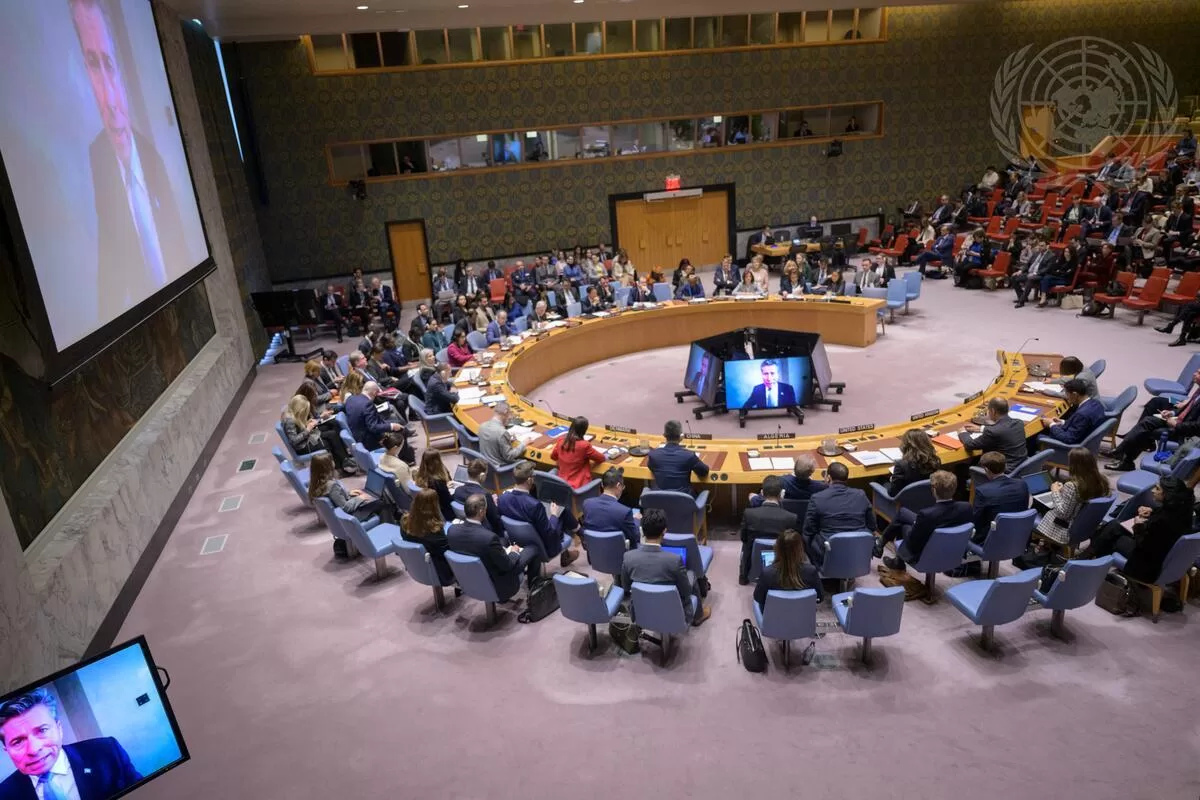
UNITED NATIONS, May 22 (WSH) — The President of the International Committee of the Red Cross (ICRC), Mirjana Spoljaric, addressed the United Nations Security Council on Thursday with a stark warning: widespread violations of international humanitarian law are not only devastating civilian populations, but eroding the foundation of international norms and shared conscience.
“I will not repeat the horrors being inflicted on civilians because of widespread violations of international humanitarian law,” Spoljaric began. “This Council is briefed—week after week—about civilians being maimed and murdered, about civilians being detained, tortured, raped, starved, and forcibly displaced.”
She challenged Council members directly, asking,
“Where is the political courage to stop the killing?”
Calling the situation both a “crisis of compliance with the rules of war” and one “of our collective conscience,” Spoljaric warned that “the precedent being set on battlefields today will haunt us for a long time.” She added, “There are no excuses for double standards. Every State has a stake in this.”
Referencing her address to the Council in September 2024, she urged member states to take immediate action:
“I called on you to turn rhetorical support for IHL into action. Specifically, I urged you to call your allies when they violate the rules of war and demand that they stop. The moment to pick up the phone is now.”
Spoljaric emphasized that international humanitarian law must apply universally:
“No one wants to live in a world where the rules of war apply only to your enemies—and not to yourself and to your allies. Civilians will suffer less when all sides commit to the basic principles of humanity in war.”
She warned against justifications based on political expedience or power:
“Ignoring these rules is a race to the moral bottom—a fast track to chaos and irreversible despair.”
“The impacts of ‘total victory’ or ‘because we can’ reverberate far beyond war zones.”
She noted that “unrestrained violence breeds even bigger security threats that can strike when and where we least expect,” adding that “if you do not defend the rules of war today, you are accepting a world where wars are fought with increasing barbarity and disregard for our shared humanity.”
The ICRC, she said, currently counts “about 130 armed conflicts across the world—more than we recorded a year ago, and more than six times what we saw 25 years ago.”
Highlighting the protracted nature of many of these conflicts, she said that in many areas, “armed forces or non-state armed groups represent the only viable source of income,” which “does not support hope for stability, let alone sustainable economic growth.”
Spoljaric stressed that “in today’s conflicts, you do not have to pull the trigger to be complicit in the consequences.”
A Defense of the Geneva Conventions
Turning to the legal framework underpinning humanitarian law, she stated,
“The Geneva Conventions were born out of the smoldering ruins of war—out of genocide, out of mass suffering—to sear into public consciousness that wars must have limits.”
She reminded Council members that the Fourth Geneva Convention “provides clear, unambiguous protections for civilians in times of armed conflict to which all states are bound.”
Spoljaric reaffirmed core IHL principles:
-
“International humanitarian law prohibits torture, sexual violence, and hostage-taking.”
-
“It requires hospitals, homes, and schools to be spared from hostilities.”
-
“It demands that all those who are captured and detained in conflict be treated humanely.”
-
“It specifies that the wounded and sick must be cared for, and that civilians have a right to receive humanitarian aid.”
She further emphasized:
“International humanitarian law also places special emphasis on the vulnerabilities of civilians living in occupied territories: they must have access to food, water, and medical care. IHL forbids the forcible transfer or deportation from occupied territories. It specifies that if conditions are made unbearable—through indiscriminate military operations, denial of food, water, medical care, or safety—any movement of civilians would still be considered involuntary.”
She warned against allowing permissive attitudes toward violations:
“The survival of these lifesaving rules cannot be taken for granted. They must be defended. They must be prioritized.”
“I am calling on this Council to prevent any permissive signals that IHL can be ignored, that lifesaving aid can be denied, and that principled humanitarian action can be replaced.”
“This sets a dangerous precedent – especially when conflict is the greatest driver of the very needs that are being ignored as I speak.”
“The way wars are fought influences how they end.”
In her closing remarks, Spoljaric reminded the Security Council of its founding mission and responsibility:
“This Council was created to promote international peace and security. Your responsibility—to find ways to de-escalate, to reconcile, to build a more stable and prosperous world—will be far harder if we allow the rules to be trampled with impunity.”
She stressed the link between respecting IHL and achieving peace:
“The way wars are fought influences how they end. The path to peace starts in a prison cell. It starts with treating prisoners with the very same dignity that you would demand for yourself.”
“Peace starts with treating the wounded, reconnecting separated families, ensuring the provision of lifesaving aid, and sparing civilians and civilian infrastructure from harm.”
Her final message was clear:
“But it is possible to protect civilians in war.”
About the ICRC:
The International Committee of the Red Cross (ICRC) is a neutral, impartial and independent humanitarian organization founded under the Geneva Conventions of 1949. It works worldwide to assist and protect people affected by armed conflict and other situations of violence.




